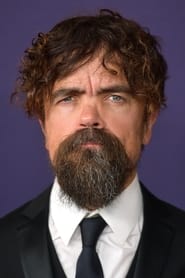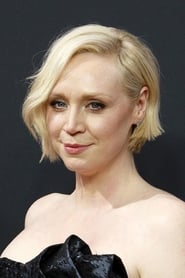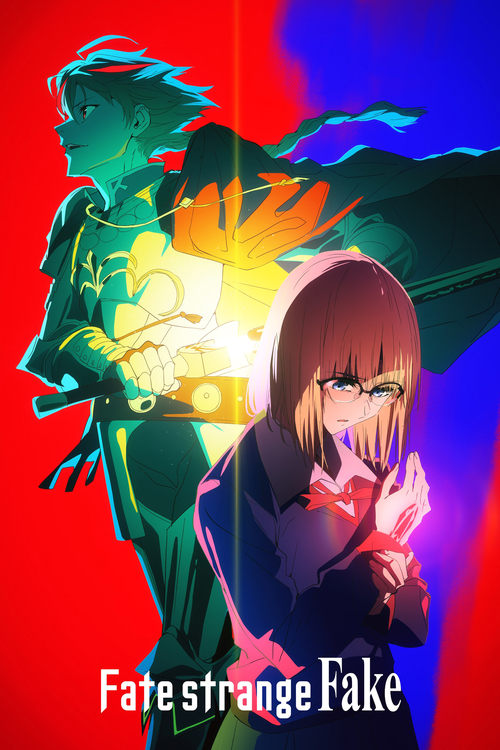
Ask Your Own Question
What is the plot?
In the "Season 1 Character Profiles: Robert Baratheon" special, the narrative begins by introducing Robert Baratheon as the King of the Seven Kingdoms, a character marked by his larger-than-life presence and a history of glory in battle. The audience learns about his past, particularly his role in the rebellion against the Targaryens, which led to his ascension to the throne. The special highlights his physicality, describing him as a robust man with a commanding stature, yet also hints at his declining health and the toll that years of indulgence have taken on him.
The scene shifts to Robert's arrival at Winterfell, where he seeks to reconnect with his old friend, Eddard Stark, the Lord of Winterfell. The atmosphere is tense as Robert's visit is not merely a social call; he has come to ask Eddard to serve as the Hand of the King following the mysterious death of Jon Arryn, the previous Hand. The special delves into Robert's emotional state, revealing his desperation for loyalty and support amidst the political turmoil of the realm. His jovial demeanor masks a deeper anxiety about the stability of his reign and the threats posed by the Lannisters.
As Robert and Eddard discuss the implications of the Hand's position, the special emphasizes the bond between the two men, rooted in their shared history and mutual respect. However, Eddard is reluctant to accept the role, feeling the weight of responsibility and the dangers that accompany it. Robert's insistence, coupled with his emotional appeal, showcases his reliance on Eddard's honor and integrity, ultimately leading Eddard to agree to take on the role, albeit with reservations.
The narrative then transitions to Robert's interactions with the Stark family, particularly with Eddard's children. The special highlights Robert's fondness for the Stark children, especially his affection for Jon Snow, whom he acknowledges as Eddard's illegitimate son. This moment serves to illustrate Robert's complex feelings about family and legacy, as he grapples with the consequences of his own choices and the impact they have on those around him.
The special also touches on Robert's relationship with his queen, Cersei Lannister. It reveals the tension and distance between them, underscoring Robert's discontent with his marriage and his lingering feelings for his former love, Lyanna Stark. This emotional conflict is pivotal, as it foreshadows the brewing discord within the royal family and the Lannisters' ambitions.
As the narrative progresses, the special highlights Robert's decision to hunt, a pastime that serves as both a distraction and a means of asserting his masculinity. The hunt becomes a metaphor for his struggles, as he seeks to reclaim a sense of control in a world that feels increasingly chaotic. The audience witnesses Robert's bravado in the face of danger, yet there is an underlying vulnerability that hints at his mortality and the fragility of his reign.
The climax of the special centers around the tragic event of Robert's death, which occurs during a boar hunt. The scene is depicted with visceral detail, capturing the ferocity of the hunt and Robert's reckless abandon as he charges after the boar. The moment is fraught with tension, as Robert's overconfidence leads to a fatal encounter. The boar attacks, and Robert is mortally wounded, a moment that encapsulates the tragic irony of a king who once wielded power with ease now brought low by his own hubris.
In the aftermath of Robert's death, the special explores the immediate consequences for the realm. Eddard Stark is thrust into a position of leadership, grappling with the political fallout and the implications of Robert's passing. The special concludes by emphasizing the legacy of Robert Baratheon, a king whose reign was marked by both triumph and tragedy, setting the stage for the ensuing power struggles that will define the fate of the Seven Kingdoms.
What is the ending?
In the episode "Season 1 Character Profiles: Robert Baratheon," the focus is on Robert Baratheon, the King of the Seven Kingdoms, as he reflects on his life, reign, and the events that have shaped his character. The episode does not have a traditional narrative ending but rather serves as a character study, highlighting Robert's motivations, struggles, and the consequences of his actions throughout the series.
As the episode unfolds, it begins with Robert Baratheon's rise to power, showcasing his early days as a warrior and his role in the rebellion against the Targaryens. The narrative emphasizes his friendship with Eddard Stark, his loyalty to his family, and the burdens of kingship that weigh heavily on him.
The episode delves into Robert's internal conflicts, revealing his disillusionment with the throne and the political machinations surrounding him. It captures his emotional state as he grapples with the loss of his former glory and the toll that ruling has taken on him. The viewer sees Robert's struggle with his identity, as he is torn between the king he is expected to be and the man he once was.
Key scenes highlight Robert's relationships with other characters, such as his tumultuous marriage to Cersei Lannister, which is marked by betrayal and resentment. The episode illustrates how Robert's decisions, including his choice to marry Cersei for political gain, have led to a fractured family and a kingdom on the brink of chaos.
As the episode concludes, it reflects on Robert's legacy and the impact of his reign on the realm. The viewer is left with a sense of the impending conflict that will arise from his choices, particularly regarding the Stark family and the Lannisters. The episode ends without a definitive resolution, instead leaving the audience to ponder the complexities of power, loyalty, and the consequences of Robert's actions.
In summary, the episode serves as a poignant exploration of Robert Baratheon's character, illustrating the weight of his crown and the personal sacrifices he has made, ultimately setting the stage for the conflicts that will unfold in the series.
Is there a post-credit scene?
In the episode "Season 1 Character Profiles: Robert Baratheon" from the "Game of Thrones" specials, there is no post-credit scene. The episode focuses on the character of Robert Baratheon, exploring his background, motivations, and the complexities of his rule as king. It delves into his relationships with other key characters, such as Eddard Stark and Cersei Lannister, providing insights into his personality and the burdens he carries as a ruler. The content is primarily a character analysis rather than a narrative continuation, and it concludes without any additional scenes or credits beyond the main content.
What motivates Robert Baratheon to seek out Ned Stark as his Hand of the King?
Robert Baratheon seeks out Ned Stark as his Hand of the King primarily due to their long-standing friendship and trust. He feels overwhelmed by the political machinations of King's Landing and believes that Ned's honor and integrity will help him navigate the treacherous waters of the court. Robert is also motivated by a sense of nostalgia for their youth and the camaraderie they shared during the rebellion against the Targaryens.
How does Robert Baratheon's character reflect the themes of power and leadership in the series?
Robert Baratheon's character embodies the complexities of power and leadership, showcasing the burdens that come with the Iron Throne. Initially portrayed as a charismatic and boisterous king, his character reveals the toll of ruling as he grapples with the consequences of his decisions, the loyalty of his allies, and the threats from his enemies. His internal struggles with his past, his love for the realm, and his inability to govern effectively highlight the challenges of leadership in a world rife with betrayal.
What is Robert's relationship with his family, particularly with Cersei Lannister?
Robert's relationship with Cersei Lannister is strained and complex. Initially, he is infatuated with her beauty, having married her for political reasons to solidify an alliance with the Lannisters. However, as the series progresses, it becomes clear that Robert is emotionally distant and largely uninterested in Cersei, often seeking solace in his past love, Lyanna Stark. This lack of affection and communication leads to tension and resentment, particularly as Cersei's own ambitions and manipulations come to light.
What are Robert Baratheon's views on the Targaryens and how do they influence his actions?
Robert Baratheon harbors deep-seated animosity towards the Targaryens, stemming from his role in the rebellion that overthrew their dynasty. His views are shaped by personal loss, particularly the death of Lyanna Stark, whom he loved. This hatred influences his actions, driving him to eliminate any remnants of Targaryen power, which he sees as a threat to his reign. His obsession with the past and the desire for vengeance cloud his judgment, impacting his decisions as king.
How does Robert's past as a warrior affect his leadership style as king?
Robert's past as a warrior significantly affects his leadership style, as he often approaches problems with a brute force mentality rather than through political strategy. His experiences in battle have made him a bold and decisive figure, but they also lead him to underestimate the complexities of ruling a kingdom. His reliance on physical strength and combat experience often clashes with the subtleties of court politics, resulting in impulsive decisions that can jeopardize his reign.
Is this family friendly?
The episode "Season 1 Character Profiles: Robert Baratheon" from the "Game of Thrones" specials delves into the character of Robert Baratheon, the king of the Seven Kingdoms. While it primarily focuses on character analysis and background, there are several aspects that may be considered objectionable or upsetting for children or sensitive viewers:
-
Violence and Warfare: The discussion of Robert's past, including his role in the rebellion against the Targaryens, may include references to battles and violence, which can be intense and graphic in nature.
-
Alcohol Consumption: Robert is often depicted as a heavy drinker, and his relationship with alcohol is a significant part of his character, which may not be suitable for younger audiences.
-
Themes of Betrayal and Power Struggles: The political intrigue and betrayal that characterize Robert's reign can be complex and may involve discussions of manipulation and moral ambiguity.
-
Emotional Turmoil: Robert's internal struggles, including his feelings of loss and regret, may be heavy and could resonate deeply with sensitive viewers.
-
Mature Themes: The overall tone of the series includes mature themes such as loyalty, honor, and the burdens of leadership, which may be difficult for younger viewers to fully comprehend.
These elements contribute to the overall mature nature of the content, making it less suitable for a family-friendly audience.
























